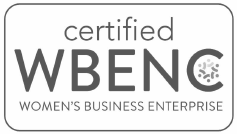Social Media Marketing is a powerful and cost-effective communication tool for small business. It is an opportunity for organizations to position themselves as thought-leaders, increase online visibility and engage both existing clients and prospects. Unfortunately, maintaining a robust social media marketing program often requires a significant time investment and can become a drain on already limited resources. By following these three easy steps, small business can make social media marketing more manageable and reap the benefits of an effective online communications program:
Align social media marketing with strategic business goals
Social Media is not a stand-alone communication tactic. It is most effective when leveraged as part of an integrated communications program. After all, not every client or prospect is using Facebook, Twitter, YouTube, Pinterest and/or Tumblr for business. Before launching a social media marketing program, identify which platforms clients and prospects are using for business. With that data in-hand, look for opportunities to leverage the identified platforms to help achieve strategic goals. For example, if you are a public relations agency that finds your target audiences are avid blog readers and one of your strategic goals is to grow your base of commercial real estate clients, you can blog about topics such as ‘How PR can help to grow commercial real estate firms.’ This is an opportunity to demonstrate that your agency understands its target market while positioning yourself as a thought-leader.
Aligning your social media marketing program with strategic business goals also gives the program clearly defined objectives and helps to identify how success will be evaluated. This allows organizations to determine the ROI on their efforts and hone their social media marketing strategy.
Develop a content calendar
Having identified which social media platforms are best for marketing your small business, it is time to identify what types of content should be shared on the platform. While it is important to engage with social media communities in a timely manner, it can help to have a sense of what you will be talking about during the weeks ahead. Start by creating a content calendar each month. While you should not and cannot draft every update that will be disseminated via social media 30-days in advance, it is beneficial to identify company events, industry conferences, milestones and timely opportunities that should be reflected in your social media content. Laying this foundation prevents sitting down at the desk each morning and spending time trying to figure out what should be shared via social media. It also ensures that there is synergy between the company’s online communications and its daily business operations.
When building a content calendar focus on identifying timely events, activities in which the company will be engaged during the upcoming month(s) and five to ten credible sources from whom you can curate content. In addition, look for opportunities to repurpose existing content that is still both timely and relevant to target audiences.
Leverage existing content
Existing content is a valuable resource for filling in your social media marketing calendar. Does your company distribute a monthly newsletter or weekly e-blast? Did the company president recently give a presentation that would be appropriate to share? Are there weekly staff meetings from which content can be pulled? Was the vice president recently featured in a small business publication?
While only the beginning of a very long list, each of the above are sources from which content can be pulled. Since social media updates are best kept succinct, you may find that one of your small business newsletters can provide content for a handful of updates. It is important to mix this repurposed content with new content from both the organization itself and credible third-party sources. This will prevent the content from becoming diluted and avoid target audiences tuning out certain communications because they are redundant.
As your small business embarks upon a social media marketing program, it is important to remember that every social media platform isn’t right for every business. Focus on identifying the platforms on which your clients and prospects are open to receiving information from the organization, providing valuable content and leveraging social media to help achieve strategic business goals.
If your small business has identified a blog as an important social media marketing tool for communicating with clients and prospects, download Co-Communications free whitepaper 20 Tips for Better Business Blogging.
{{cta(‘bfa08137-9581-4aa8-9136-51bf976600d4’)}}
For companies looking to launch a social media marketing program and beginning to develop their social media marketing strategy, we also offer a free Social Media Toolkit.
{{cta(‘3faf709c-92e8-4b6f-8ebc-365b64709e9d’)}}

